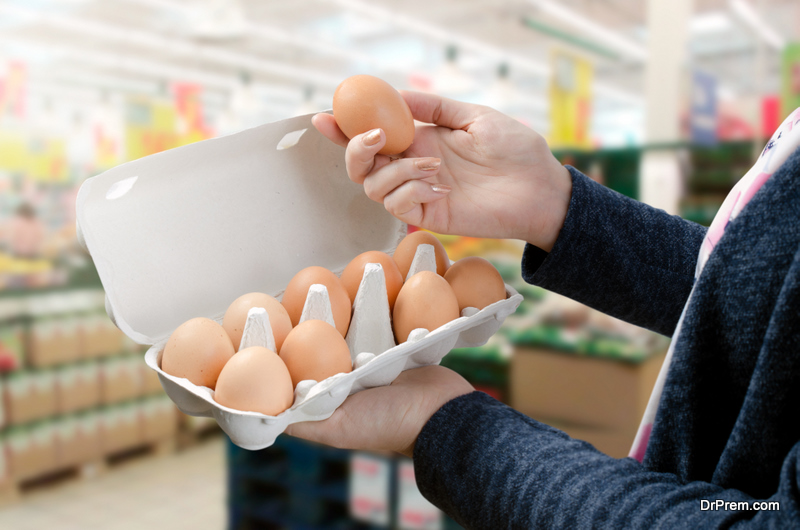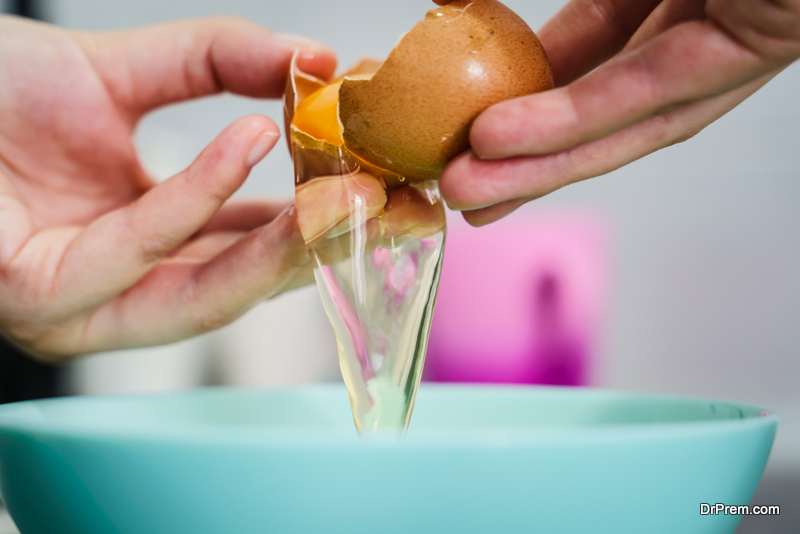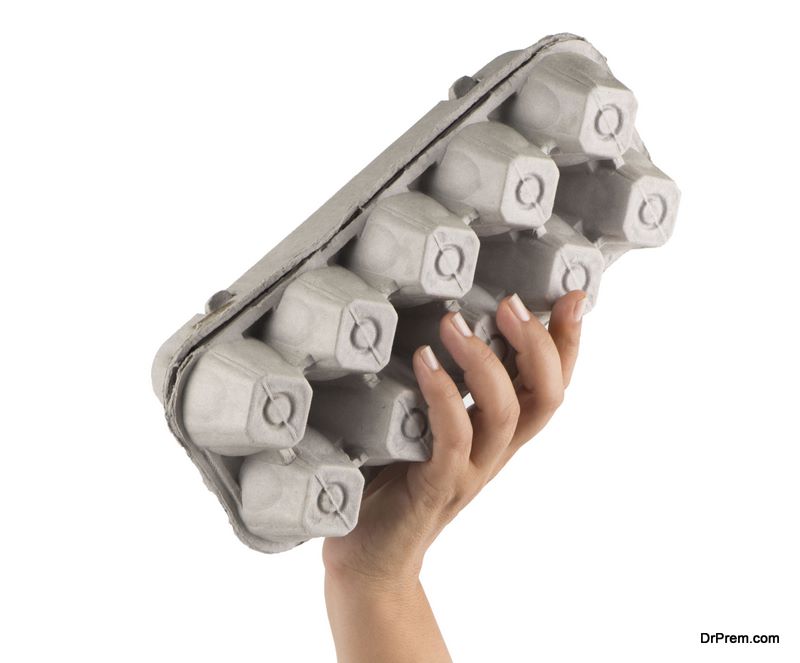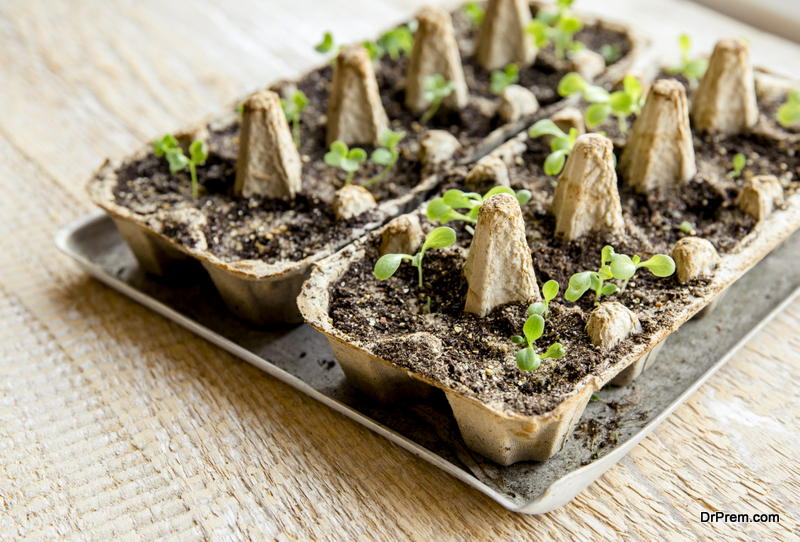Eggs are nothing short of a miracle of nature if you ask me. Naturally perfectly packaged, eggs are a healthy and delicious item which are considered a staple all over the world. The versatility of eggs allows us to use them a million and one ways in all sorts of cuisines. If you, like us, love eggs in any form, read on to learn about some tips that you can use to ensure that you are making eco-friendly choices when it comes to sourcing and using eggs.
1. Choose your eggs wisely
 If you look closely at the writing on the egg cartons at the grocery store, you will notice that there are all sorts of descriptions on the box. Free-range, hormone-free, cage-free, vegetarian-fed, it can be baffling if you don’t know what these terms imply, and what the effects of these choices can be on your health and the health of the planet.
If you look closely at the writing on the egg cartons at the grocery store, you will notice that there are all sorts of descriptions on the box. Free-range, hormone-free, cage-free, vegetarian-fed, it can be baffling if you don’t know what these terms imply, and what the effects of these choices can be on your health and the health of the planet.
Cage-Free or free-range eggs are those that are laid by chickens who are not caged and have access to the outdoors. However this is a loose definition and this in a claim that is not well regulated. A better preference would be the eggs labelled“Certified Humane”. This means that the chickens have not only been allowed to remain uncaged, they are also living the “free life”they would enjoy as free birds.
Another certification label that is good is vegetarian-fed, which means that the birds enjoy a natural diet and aren’t fed animal by-products that chickens would not eat in nature. The best label to look for is “organic”, as this is a regulated, certified, label that shows that the chickens are kept free range and the feed given to chickens is free of synthetic chemicals or GMOs.
While organic eggs are certainly the best choice, they can also cost a bit more than regular eggs. It might be cheaper to buy them in bulk, however you should know how to tell if eggs are bad or stale, so you don’t end up saving money on a bulk delivery of eggs and then discover that they’re not as fresh as they should be.
2. Save your eggshells
 Don’t throw your eggshells in the trash! Eggshells can be reused in many ways. They are especially useful in the garden. You could put them in the compost bin, or you can simply crush them up and sprinkle in your garden. Eggs shells have been known to add nutrients to the soil and can even deter pests. You can fill eggshell halves with your favourite potting soil and use them as seed starters, once the plant sprouts, just plant them directly into the ground.
Don’t throw your eggshells in the trash! Eggshells can be reused in many ways. They are especially useful in the garden. You could put them in the compost bin, or you can simply crush them up and sprinkle in your garden. Eggs shells have been known to add nutrients to the soil and can even deter pests. You can fill eggshell halves with your favourite potting soil and use them as seed starters, once the plant sprouts, just plant them directly into the ground.
3. Repurpose the egg cartons
 Like the eggshells, don’t throw away empty egg cartons too hastily. Pinterest and the internet is chockfull of ways you can reuse egg cartons. Some examples of repurposed egg carton uses are crafts, seed starters, disposable palettes for painting projects, packing and insulation materials.
Like the eggshells, don’t throw away empty egg cartons too hastily. Pinterest and the internet is chockfull of ways you can reuse egg cartons. Some examples of repurposed egg carton uses are crafts, seed starters, disposable palettes for painting projects, packing and insulation materials.
Let us know if you have any ideas on eco-friendly ways to use eggs. Stay green.
Article Submitted By Community Writer




